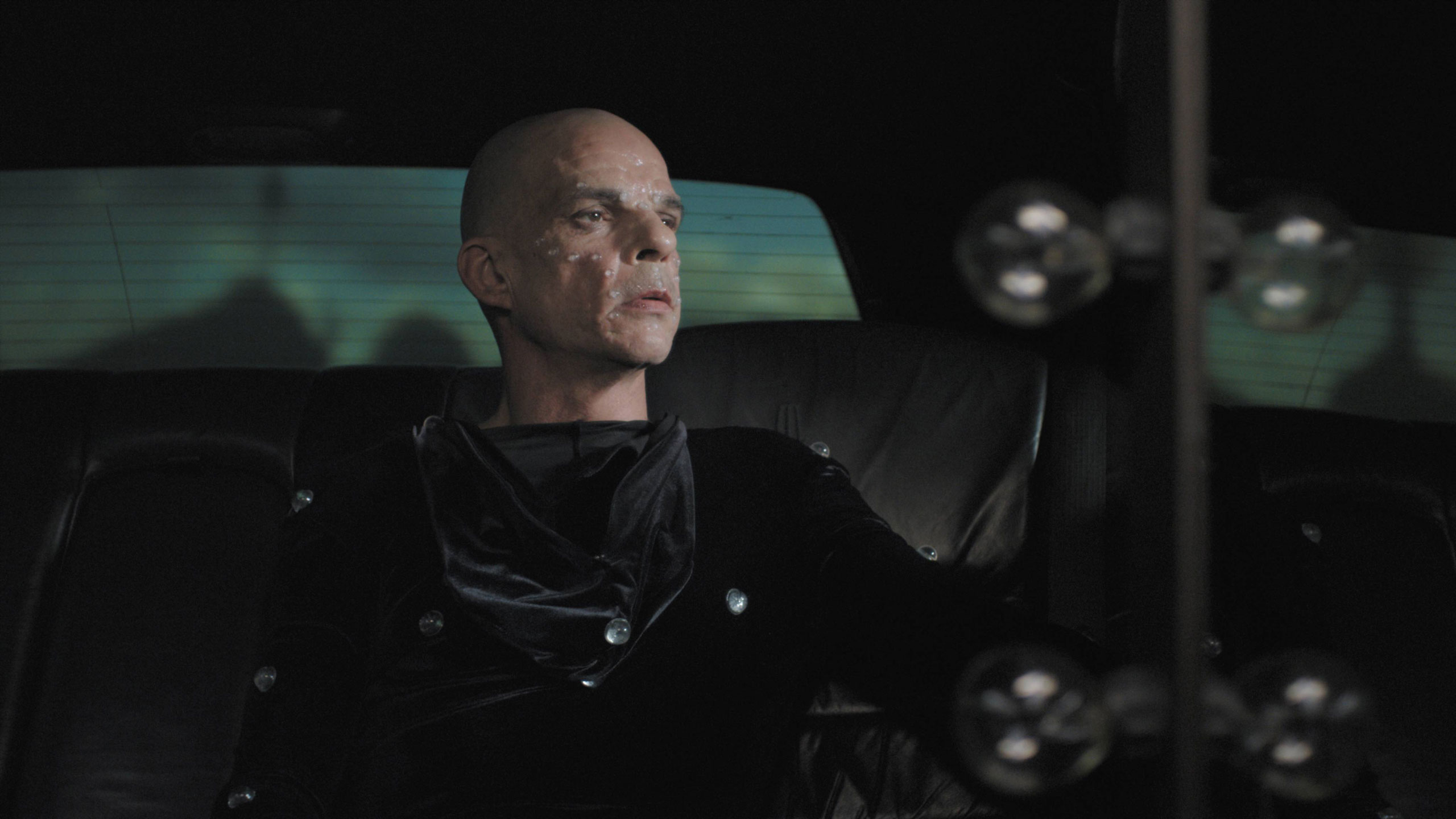Movies often have meaning beyond their components. We stammer to explain what a film is about, only to find words drifting away from us. All we know is that a movie has picked us up, like an Oz-style tornado, and left us somewhere we didn’t expect to be. That’s the effect of Leos Carax’s extraordinary, exhilarating and not-fully-sane Holy Motors, an ode to the life of the imagination as it’s reflected in art, and in cinema specifically. The magnificently acrobatic French actor Denis Lavant plays a mysterious gent named Monsieur Oscar, who’s whisked off to his job every day in an elegant stretch limo (its driver is the equally elegant Edith Scob, who, as a young woman, played the disfigured daughter in Georges Franju’s Eyes Without a Face). Oscar’s job, as far as we can discern it, is to play-act: One moment he’s a killer for hire, the next he’s a dying man attended by his grief-stricken niece. At another point he’s the ex-lover, perhaps, of a mysterious woman in a film-noir trench coat, played by a pensive Kylie Minogue. Then he’s a raging gnome in a green velvet suit, invading a fashion shoot in Pere Lachaise Cemetery. Set in the most beautiful Paris imaginable, a city of silvery graveyards and shuttered department stores teeming with art nouveau specters, Holy Motors is exuberant and melancholic at once, an expression of everything movies can mean when they take us to places beyond meaning.
- How Donald Trump Won
- The Best Inventions of 2024
- Why Sleep Is the Key to Living Longer
- Robert Zemeckis Just Wants to Move You
- How to Break 8 Toxic Communication Habits
- Nicola Coughlan Bet on Herself—And Won
- Why Vinegar Is So Good for You
- Meet TIME's Newest Class of Next Generation Leaders
